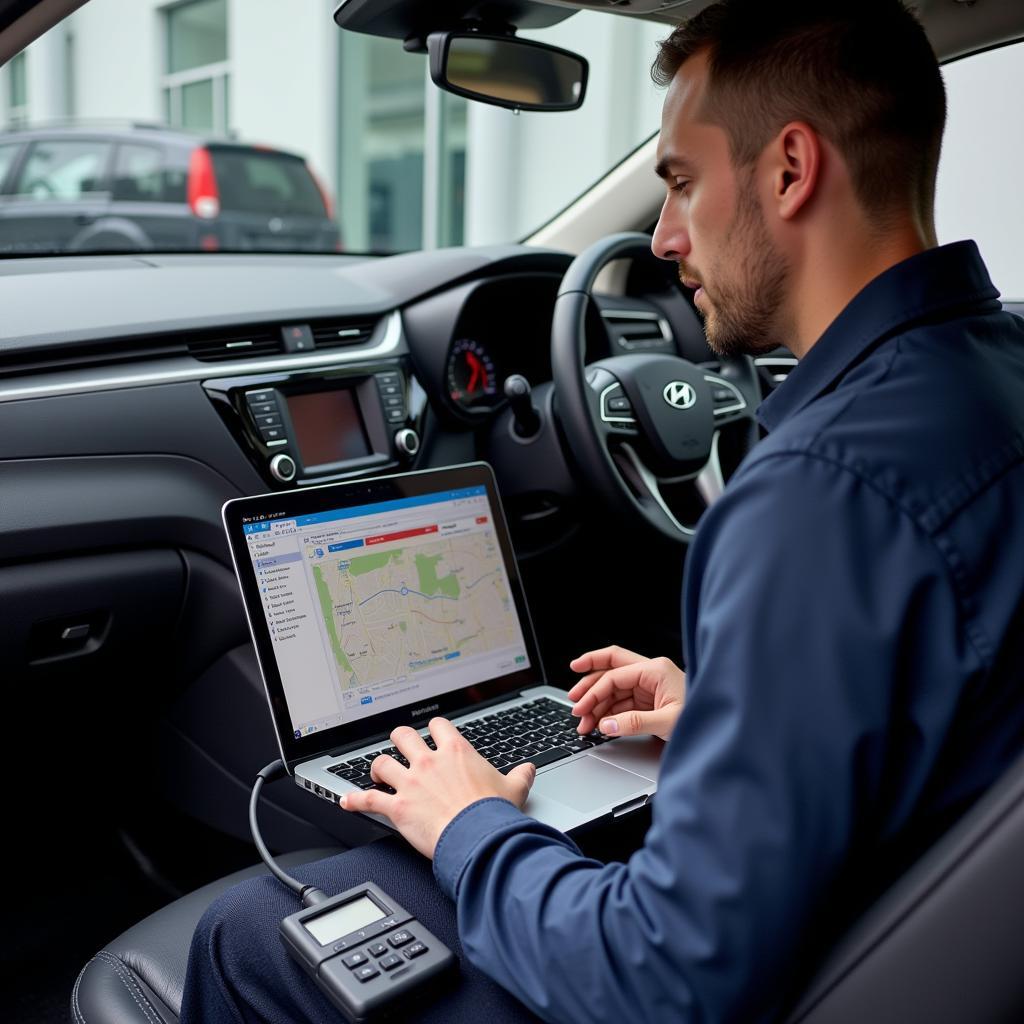Taking care of your car doesn’t have to be a daunting task. By understanding the basics of car maintenance, you can keep your vehicle running smoothly and avoid costly repairs down the road. This guide will cover the essential car maintenance tasks that every car owner should know, whether you’re a seasoned driver or just starting out.
Understanding the Importance of Basic Car Maintenance
Regular car maintenance is crucial for ensuring a safe and reliable driving experience. It helps prevent breakdowns, extends your car’s lifespan, and saves you money in the long run. By addressing minor issues before they become major problems, you can avoid costly repairs and potential accidents.
Why is Basic Car Maintenance So Important?
- Improved Performance: Regular maintenance ensures your car runs at peak performance, leading to better fuel efficiency, smoother driving, and reduced emissions.
- Enhanced Safety: Maintaining your car’s safety features, like brakes, tires, and lights, is vital for keeping you and your passengers safe on the road.
- Increased Longevity: Taking care of your car can extend its lifespan significantly, allowing you to enjoy its benefits for longer.
- Cost Savings: Addressing minor issues early can prevent major problems, leading to significant cost savings on repairs.
Essential Car Maintenance Tasks
Here’s a breakdown of the essential car maintenance tasks you should prioritize:
1. Check Your Fluids
Fluids are crucial for your car’s smooth operation. Regularly checking and topping off the following fluids is essential:
- Engine Oil: Ensures proper lubrication for moving parts.
- Coolant: Prevents overheating and regulates engine temperature.
- Brake Fluid: Maintains brake pressure and ensures reliable braking.
- Power Steering Fluid: Assists with steering and reduces steering effort.
- Transmission Fluid: Lubricates the transmission system for smooth shifting.
- Windshield Washer Fluid: Keeps your windshield clean and provides clear visibility.
2. Tire Care
Tires are the only contact points between your car and the road, so it’s vital to keep them in good condition.
- Tire Pressure: Ensure your tires are inflated to the manufacturer’s recommended pressure.
- Tire Tread Depth: Check the tire tread depth using a tread depth gauge. Replace tires when the tread depth reaches the legal limit.
- Tire Rotation: Rotate your tires regularly to ensure even wear and tear.
3. Battery Maintenance
The battery is the heart of your car’s electrical system.
- Battery Terminals: Clean the battery terminals regularly to prevent corrosion and ensure good electrical connection.
- Battery Testing: Have your battery tested periodically to check its charge and health.
4. Air Filter
The air filter protects your engine from dirt and debris.
- Air Filter Replacement: Replace the air filter as recommended by the manufacturer. A clogged air filter can restrict airflow and reduce engine performance.
5. Spark Plugs
Spark plugs ignite the fuel-air mixture in your engine.
- Spark Plug Replacement: Replace spark plugs at the recommended intervals to ensure optimal engine performance and fuel efficiency.
6. Brake System
The brake system is vital for safe driving.
- Brake Pad Inspection: Visually inspect brake pads for wear and tear. Replace pads as needed.
- Brake Fluid Flush: Flush and replace brake fluid at recommended intervals to maintain optimal braking performance.
7. Regular Oil Change
One of the most important car maintenance tasks is an oil change.
- Oil Change Frequency: Follow your car manufacturer’s recommendations for oil change intervals.
- Oil Filter Replacement: Always replace the oil filter along with the oil.
8. Car Wash and Wax
Washing and waxing your car doesn’t just make it look good.
- Car Wash: Regularly wash your car to remove dirt, grime, and salt build-up that can damage the paint.
- Car Wax: Apply a layer of wax to protect your car’s paint from UV rays and other environmental damage.
Additional Car Maintenance Tips
“The best thing you can do to keep your car running smoothly is to follow your owner’s manual,” says professional mechanic, David Smith. “It outlines the specific maintenance schedule for your vehicle, ensuring that you’re addressing all the necessary tasks at the appropriate intervals.”
Here are some additional tips for maintaining your car:
- Check Your Lights: Regularly check all your lights, including headlights, taillights, brake lights, and turn signals, to ensure they are functioning properly.
- Inspect Belts and Hoses: Visually inspect your belts and hoses for signs of wear, cracks, or leaks. Replace them if necessary.
- Check Your Wipers: Replace your wiper blades if they’re streaking or leaving streaks on your windshield.
- Regular Inspections: Take your car to a trusted mechanic for regular inspections, even if there aren’t any noticeable problems.
“It’s much cheaper to catch minor problems before they turn into major issues,” says automotive expert, Sarah Johnson. “Don’t wait for your car to start making strange noises or experiencing performance issues. Regular inspections can save you a lot of money and stress in the long run.”
Conclusion
Following these basic car maintenance tips can help you extend your car’s lifespan, save money on repairs, and ensure a safe and enjoyable driving experience. Remember to consult your owner’s manual for specific recommendations tailored to your vehicle. If you’re unsure about any car maintenance tasks, don’t hesitate to consult a trusted mechanic.
Contact us at AutoTipPro if you need any assistance with your car maintenance needs. We offer expert advice and reliable services to keep your car running smoothly.
Phone: +1 (641) 206-8880
Office: 500 N St Mary’s St, San Antonio, TX 78205, United States
FAQ
1. How often should I change my car’s oil?
The oil change frequency varies depending on the car model and driving conditions. Consult your owner’s manual for specific recommendations.
2. What are the signs of a bad tire?
Signs of a bad tire include low tread depth, uneven wear, bulges or cracks in the sidewall, and slow leaks.
3. How do I check my car’s battery?
You can check your battery by having it tested at an auto parts store or by using a battery tester.
4. What is the best way to maintain my car’s brakes?
Regularly inspect your brake pads for wear and tear, and flush the brake fluid at recommended intervals.
5. What are the benefits of regular car washes?
Regular car washes remove dirt, grime, and salt build-up that can damage the paint and shorten the life of your car.
6. How often should I replace my air filter?
Replace your air filter every 12,000 miles or as recommended by the manufacturer.
7. What are the signs of a bad spark plug?
Signs of a bad spark plug include misfires, poor fuel economy, and difficulty starting the engine.






Leave a Reply